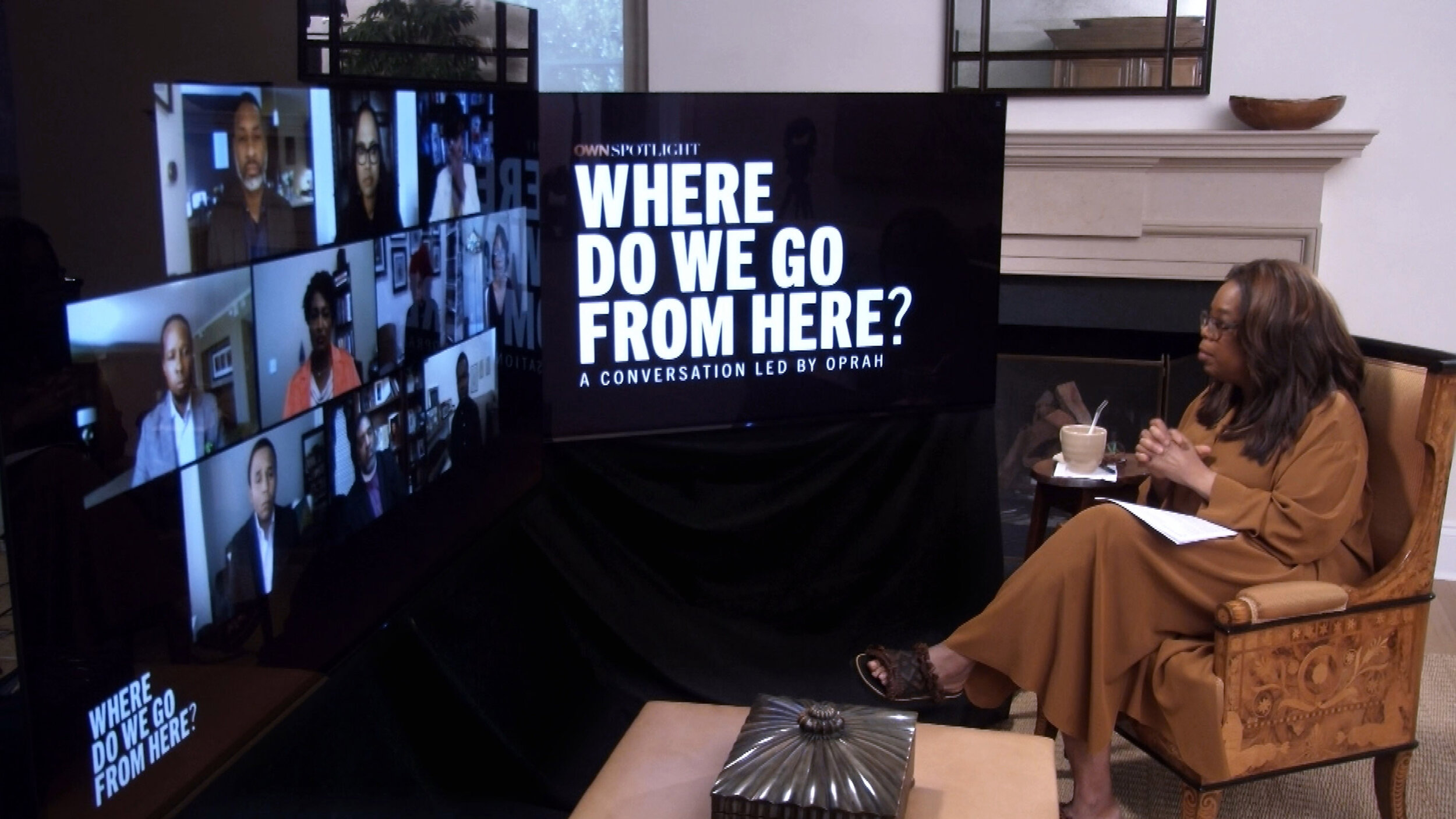Deep Listening: It Ain’t A Luxury
The function of freedom is to free someone else. If you have some power, then your job is to empower somebody else.
–Toni Morrison
And the Conversation Continues
In a CBS This Morning interview with Gayle King, Alexis Ohanian, husband of Serena Williams and co-founder of the social news website Reddit, talked about his decision to step down from the Reddit board. “There are situations where I expect to be heard,” he said, and that for all his life he has taken for granted that “someone is going to hear me, take my side, and trust what I am going to say.” A luxury people of color cannot echo.
Oprah hosted a conversation this week in response to the current social upheaval and to speak to where we go from here. She invited thought leaders from civic, cultural, political, and spiritual realms – filmmaker Ava DuVernay, politician Stacy Abrams, Selma star David Oyelowo, journalist Charles M. Blow, Color of Change founder Rashad Robinson, author Ibram X. Kendi, the Rev. Dr. William J. Barber II, Atlanta Mayor Keisha Lance Bottoms, author and professor of psychology Jennifer Eberhardt, and journalist and Pulitzer-winning founder of the “1619 Project,” Nikole Hannah-Jones. Oprah opened the conversation by saying that she has been having these discussions about racism for more than 35 years. And yet, here they were in a heart-wrenching, emotional exchange about the same issues.
A common thread was the frustration of hearing the same narrative, having the same conversations over and over, for decades, and still being in the grip of systemic injustice. A perpetual cycle of explaining, appealing, yelling, demanding, and still not being heard.
What does it take to be heard? When voices are raised in protest, they are hard to ignore. What collective, creative actions can help transform a system that devalues, overlooks, and ignores the voice of a people?
Since in order to speak, one must first listen, learn to speak by listening.
– Rumi
Conscious Communication
A person is also a system—one full of beliefs, thoughts, biases, and emotions that limit the full moral clarity of our consciousness and actions. Moments of rage, despair, sorrow, and pain can only be recognized and acknowledged when we listen and take action from a place of deeper understanding.
The author and creator of Theory U, C. Otto Scharmer, says that there are four levels of listening:
Downloading is transferring information that is already familiar. People only listen to reconfirm what they already know.
Factual listening is listening attentively when the information is different from what you know, so it can be added to what is already known.
The next two levels are where Scharmer says we should strive to function from:
Empathic Listening requires an ability to connect on an even deeper level by empathizing and seeing the situation through that person’s eyes. Respect for the other’s perspectives help shape and define decision-making.
According to Scharmer, the highest and most informative level of listening, Generative Listening, is a critical skill for all leaders because it’s “where we see another person in terms of past, present and future possibilities." Here, people listen creatively without their personalities getting in the way of results. Generative listening connects an individual with the best possible emerging future they can envision. With a profound shift into a deep sense of knowing, the generative action that follows is fundamentally kind and compassionate.
Otto Scharmer’s Theory U
Scharmer further says that truly generative listening connects us to a greater, more expansive level of self-awareness, to our inner wisdom or Source. The place of future possibility is when we are fully seen and heard; we know that we matter. Knowing we matter evokes a sense of worthiness and belonging. As such, let us:
Slow down, notice what is present, not the recent past or our desired result.
Listen with all our senses and feel the experience.
Listen to the words chosen without translating or interpreting.
Listen to the emotions in tone of voice, the silence, and the rhythm of the spoken word
Suspend judgement, be it moral or cognitive, not pre-empting or dismissing what the person is saying as they are making sense of it.
As we accept what the other person is saying as their reality, we can pay attention to what we don’t understand or what triggers questions, instead of what we don’t like. Moving away from agreeing or disagreeing, generative listening allows you to identify what you feel as you listen, and why. Listening with your heart and mind shifts you into empathy and compassion, where different emotions and responses are revealed.
Creating & Holding Space
In a climate of conflict, turmoil, and unrest, creating a space to engage in deep listening is not easy. Feelings that arise, rooted in our experience and particular reality cause animus and distrust. Writer Sahana Chattopadhyay has conceived of the following elements which would allow for generative listening to emerge: Frame an invitation as open and welcoming; tap into a space of possibility through listening; show up in all of our wholeness; speak inner truth from our authentic self; maximize synergy and create openness for the new to emerge; identify and align intention; and create safety through a sense of belonging.
Frame an invitation as open and welcoming; tap into a space of possibility through listening; show up in all of our wholeness; speak inner truth from our authentic self; maximize synergy and create openness for the new to emerge; identify and align intention; and create safety through a sense of belonging.
There is no time for despair, no place for self-pity, no need for silence, no room for fear. We speak, we write, we do language. That is how civilizations heal.
–Toni Morrison
Creative leaders are facilitators of transformative learning and co-creation. In our leadership journeys, we must consider the space that we create and hold for others to be heard.




